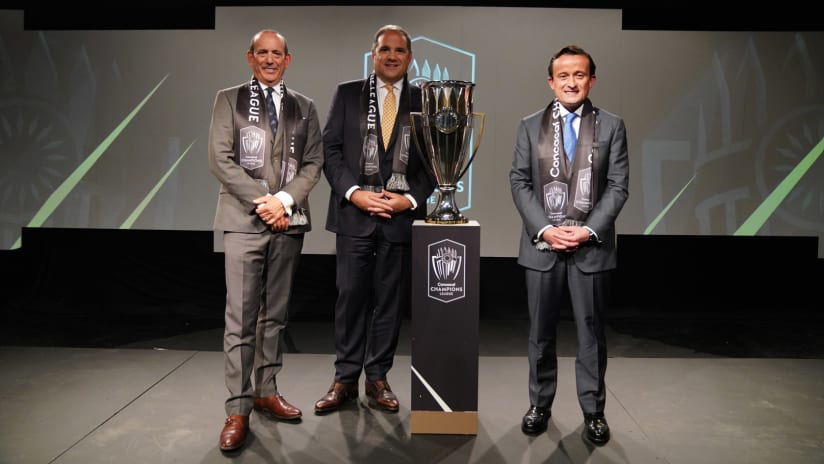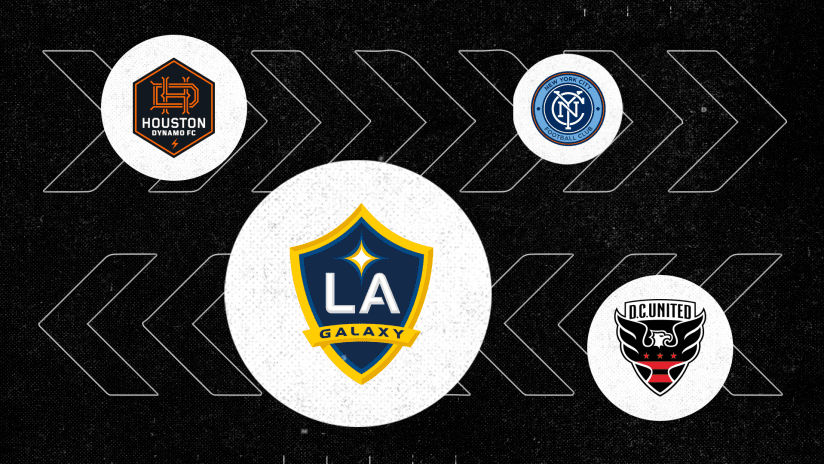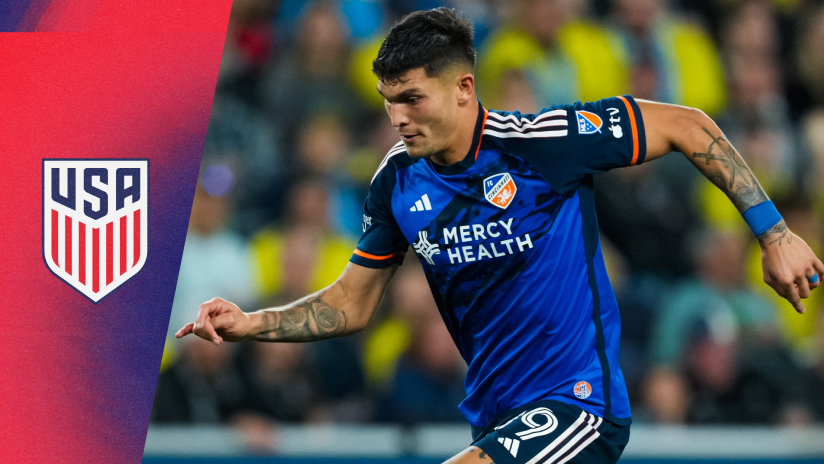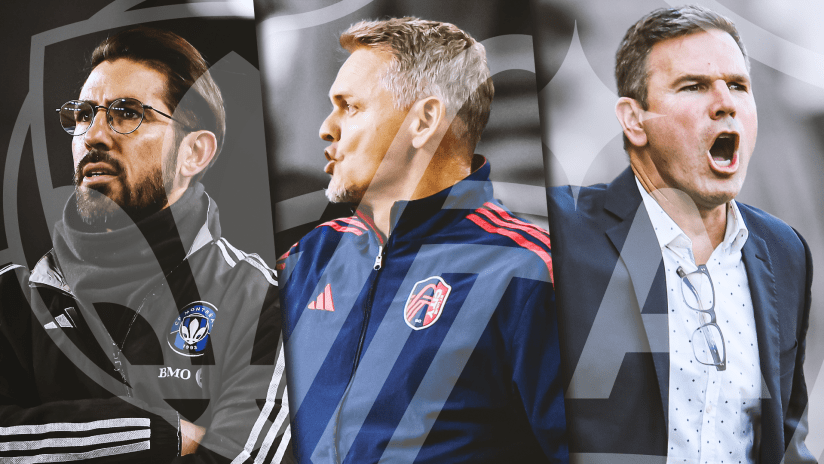NEW YORK — Leagues Cup and Concacaf Champions League both have a brand new look. And, with it, the budding cooperation between MLS and Liga MX is shooting for the moon.
It’s fitting that MLS Commissioner Don Garber described the changes as “rocket fuel” for the competition among leagues and federations.
Starting in 2023, all MLS and Liga MX clubs will participate in the Leagues Cup, a reimagined month-long tournament taking place in the summer while both leagues pause their domestic calendars, the two leagues and Concacaf announced Tuesday. Together with the new format, there'll be plenty of fresh incentives: The tournament will have three places up for grabs in an expanded Concacaf Champions League.
In the buildup to the 2026 World Cup being held in the United States, Mexico and Canada, Liga MX and MLS are preparing for takeoff into what they believe will be a new stratosphere for Concacaf and North American soccer.
“The World Cup is a transformational opportunity for our league,” Garber told media in midtown Manhattan. “We need programming, we need partnerships and activities so we don’t just wait for it to come. … This tournament [Leagues Cup] will be rocket fuel.”
The original iteration of Leagues Cup began in 2019 with eight teams, four from each league. Cruz Azul won the inaugural edition, while it was canceled in 2020 due to the COVID-19 pandemic. The Seattle Sounders face Club Leon in this year’s final on Wednesday (10 pm ET | ESPN2, UniMas, TUDN).
Discussions around what the nascent competition could become had this vision in mind for years, both Garber and Mikel Arriola, executive president of Liga MX, explained.
Most importantly, for competition prestige, authenticity and mutually beneficial relationship, Concacaf have sanctioned Leagues Cup as an official competition.
“It’s a symbiotic relationship,” FIFA vice president and Concacaf president Victor Montagliani said. “Leagues Cup is going to enhance Champions League and Champions League will enhance Leagues Cup. Fans are attracted to it, but fans want official competitions. When it’s an official competition, it means more. Making it an official competition and part of our ecosystem has made it even more relevant. That’s the symbiotic relationship: It’s good for us and it’s good for them.”
Arriola echoed that sentiment.
“The only rivalry we have is inside the stadiums,” said Arriola. “Outside the stadium, we [Liga MX & MLS] want to grow together.”
Off the field, there are obvious advantages to an expanded Leagues Cup.
The competition brings closer together two huge soccer markets that continue to expand. Liga MX matches routinely draw great television numbers in the United States, while both Mexico's club and national teams attract impressive in-stadium attendances. MLS will handle broadcast rights in the US and Canada, while Liga MX will oversee those discussions in Mexico.
With successes in joining together for the inaugural editions of Leagues Cup and Campeones Cup, as well as this year’s historic All-Star Game presented by Target between the leagues, the trajectory is a positive one.
“The excitement around Leagues Cup is really significant,” Garber said of media partners interested in securing broadcast rights. “With every media partner we’ve spoken to, and even corporate partners, the idea that we’ll take a break in our season, have a meaningful competition at a time when there’s not a lot of soccer being played around the world, so it’s no coincidence when we’ll play. The idea we’ll take a break in our schedule, which is unprecedented, has lots of people really excited. Probably more so than we expected.”
There will be hurdles, of course. In the ever-changing soccer landscape, the break in both domestic calendars further crowds a busy schedule. MLS clubs play 34 leagues matches and some will compete in the CCL. Not to mention U.S. Open Cup, the Canadian Championship, Campeones Cup and international windows loading up duties for clubs. To ensure teams can adequately devote their focus and resources to Leagues Cup, there will be one month in the summer in which no league matches are played.
Montagliani already acknowledged the global soccer calendar has to change and pointed to larger discussions happening with FIFA and their federations regarding international competitions.
“When football stands still, it’s not a good thing,” he said.
“We have to create something that increases in time in terms of better competition and growth,” Arriola added. “We want to compete with the European leagues.”
Ambition is certainly not in short supply between all parties, neither is cooperation.
“There is nothing like this in professional sports, certainly nothing like this in soccer,” Garber said. “That’s going to be pretty cool.”













